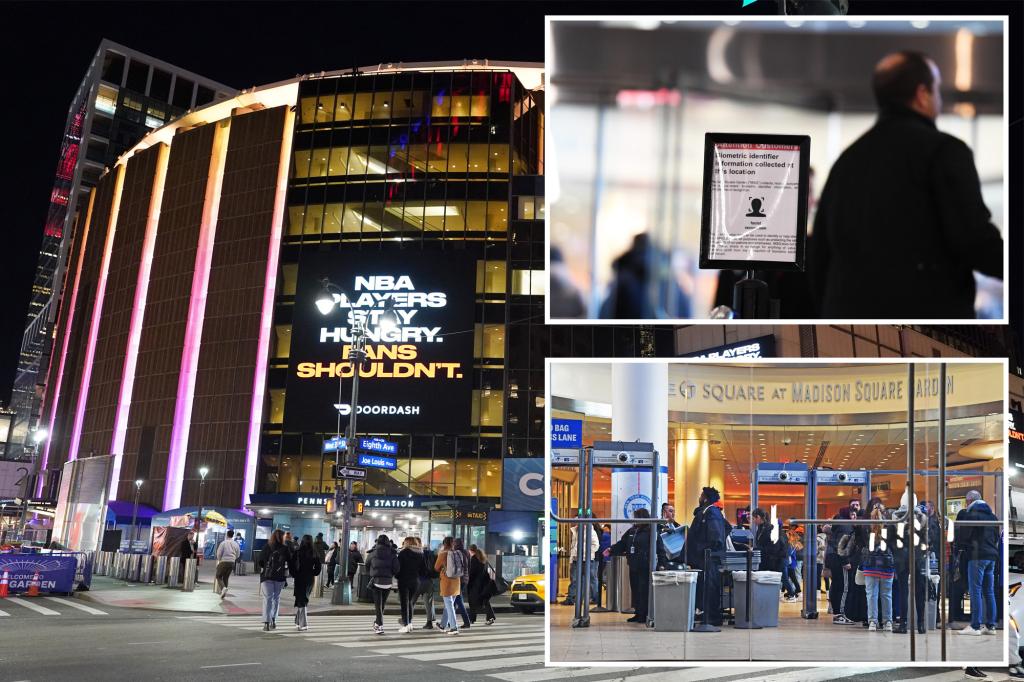A federal judge recently dismissed a data-privacy lawsuit against Madison Square Garden claiming the illegal use of facial recognition technology to intimidate legal opponents. Judge Lewis Kaplan ruled that while the use of biometric data may be objectionable, it did not violate privacy laws. This decision contradicted a recommendation from U.S. Magistrate Judge James Cott in January that the class-action lawsuit should proceed against MSG Entertainment and owner James Dolan for allegedly using biometric data for personal gain.
The lawsuit accused MSG of profiting from collecting facial images to prevent future lawsuits by scaring off potential legal opponents. However, Judge Kaplan disagreed with these claims, stating that MSG’s policies and practices are legal and do not involve selling or profiting from customer data. Dolan has been criticized for using facial recognition software to keep unwelcome attorneys and critics out of the arena and other venues owned by MSG, such as Radio City Music Hall. An MSG spokesperson welcomed the judge’s decision, emphasizing the legality of their data policies.
The lawsuit was filed on behalf of two New Yorkers, Aaron Gross and Jacob Blumenkrantz, with the potential to cover millions of individuals who have attended events at MSG-owned venues since the city’s biometric data protection law took effect in July 2021. This law aims to prevent businesses, including entertainment venues, from selling personal information for profit. When the lawsuit was first reported by The Post after its filing in state court in March 2023, MSG executives dismissed it as “the dumbest suit yet.” The plaintiffs’ lawyer, Israel David, did not respond to requests for comment on the judge’s decision.
The dismissal of the lawsuit highlights the complex legal issues surrounding the use of biometric data and facial recognition technology. While some may find the use of such technology objectionable, the legal system may not always provide clear avenues for challenging its use. In this case, the court ruled that MSG’s practices were legal, despite concerns about the potential misuse of biometric data for personal gain. The decision raises questions about the balance between privacy rights and technological advancements in surveillance and security measures.
The lawsuit against Madison Square Garden reflects broader concerns about the collection and use of biometric data in various industries, including entertainment venues. As technology continues to advance, questions about privacy and data protection become increasingly important, prompting legal challenges and debates about the appropriate use of facial recognition technology. The legal battle over these issues is likely to continue as businesses and individuals navigate the complex landscape of data privacy laws and regulations. It remains to be seen how future cases involving biometric data and facial recognition technology will be decided in the courts.
The ruling by Judge Kaplan underscores the importance of legal clarity and oversight when it comes to the use of biometric data and facial recognition technology. While businesses may argue that such practices are necessary for security and operational purposes, concerns about privacy and data protection must also be taken into account. As technology continues to evolve, it is essential for lawmakers and regulators to establish guidelines and safeguards to protect individuals’ privacy rights in the digital age. The outcome of the lawsuit against Madison Square Garden serves as a reminder of the ongoing challenges and debates surrounding the use of biometric data and facial recognition technology in today’s society.


